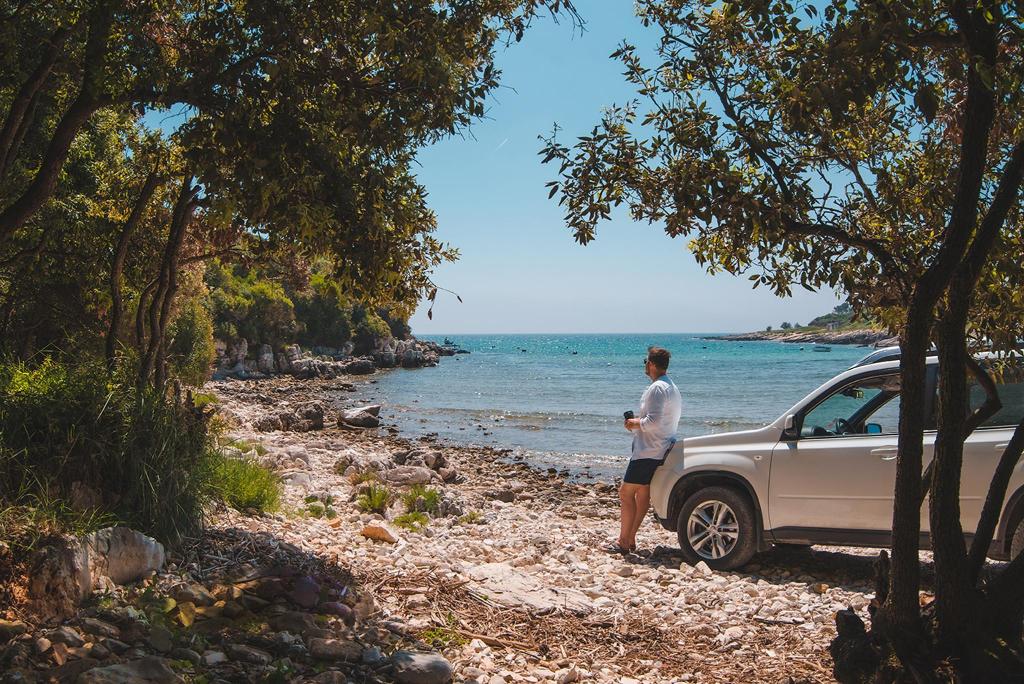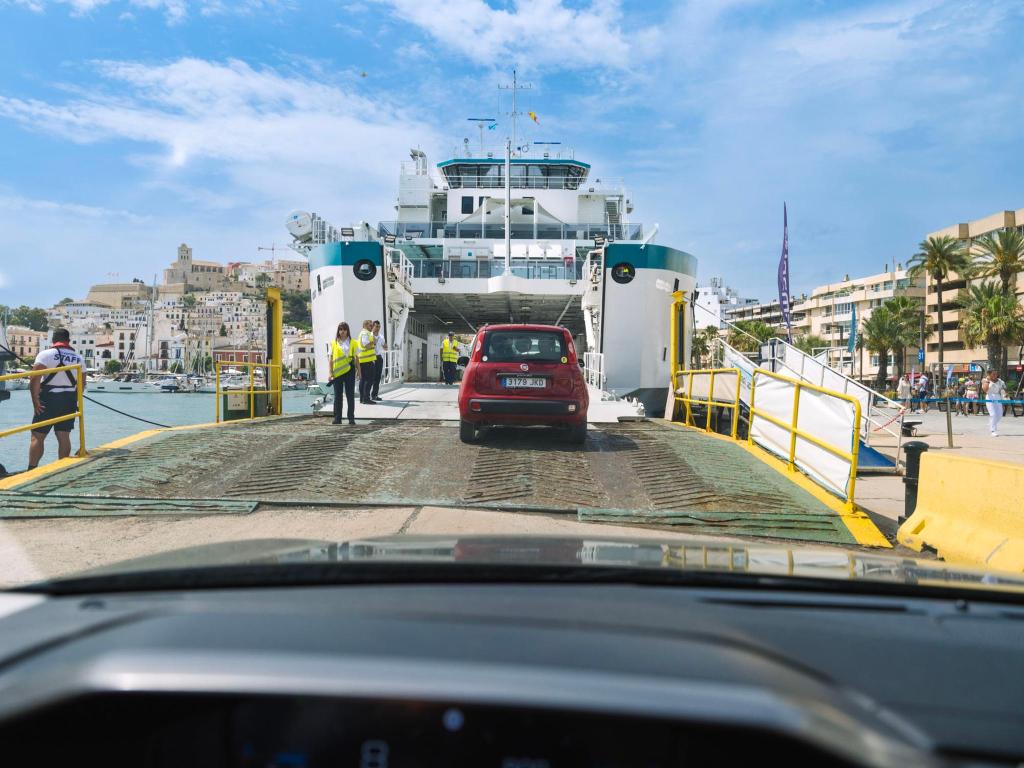
Top 9 Unexpected Car Rental Charges and How to Avoid Them
- Learn 9 of the most common car rental charges including insurance charges and upgrade charges
- Explore how to avoid unexpected car rental charges
Renting a car should be straightforward, but if you’re not careful, you might end up with some unexpected charges that can put a dent in your travel budget. From surprise insurance costs to unexpected damage fees, these hidden costs can catch you off guard. This article will help you understand these costs and tell you how to avoid them so that you can enjoy your holiday without any unpleasant financial surprises.
Insurance charges
Insurance charges for a rental car can cover damages, theft, and accident expenses. If the car is damaged or stolen, this insurance comes in handy.
Companies like Hertz offer options such as a Loss Damage Waiver (LDW) and a Partial Damage Waiver (PDW), while others like Alamo include a Collision Damage Waiver (CDW) in their rental car price and offer additional coverage as add-ons.
To avoid paying extra for rental insurance, you can take the following steps:
- Check if your credit card provides rental car coverage and for what types of vehicles
- Review your regular auto insurance to see if it covers rental car damages
- Choose a car with solid safety features like airbags, antilock brakes etc
- Opt for a more affordable car as the expensive ones often come with higher insurance costs
Car hire insurance at Booking.com
There are three types of car hire insurance at Booking.com. They are the following:
- Collision Damage Waiver (CDW): protects you in case of a road accident
- Full protection: covers the excess and exclusions on the supplier’s CDW
- Extra cover: covers additional risks like breakdown cover, towing and admin costs
| Insurance products | Full Protection | CDW (Collision Damage Waiver) | Extra Cover (Zero Excess Cover) |
|---|---|---|---|
| Type of bookings | ‘Non-Basic’ - comes with the supplier's CDW | ‘Basic’ - no suppliers CDW | Supplies CDW which does not have any excess |
| Customer needs | Excess + Exclusions + Extras | CDW / CDC / CDI | Exclusions & Extras |
| Offers | Excess - windows, mirror, roof, wheels, clutch, battery, towing, taxis, lost keys, admin fees | Independent CDW with no excess | Windscreen, headlight, tires, roadside assistance, towing, lost keys, admin fees |
| Provision | Malta (EEA & UK)Rentalcover (ROW) | Rentalcover (Cover Genius) | Rentalcover (Cover Genius) |
Upgrade charges

An upgrade charge is the extra fee you pay when you decide to upgrade your rental car to a higher category than what you originally booked. This upgrade could mean a bigger car, one with a better engine, or a vehicle with additional features. Sometimes, when rental car companies are running short of smaller cars, they upgrade yours to a bigger car without any additional cost or with a very nominal amount.
To avoid upgrade charges, resist the urge to upgrade your rental car at the counter unless the company is offering it for free or extremely low charges. Check the company’s website to see the different categories of cars with a special focus on the category you selected.
Damage charges
When you rent cars, you’re responsible for paying a fee if the car is damaged, also known as an excess charge. This amount is charged separately for each damage event.
You can avoid these charges by doing the following:
- Inspect the car before driving off to ensure there are no pre-existing damages that you can potentially be asked to pay for
- Use your credit card’s insurance for rental cars
- Buy the collision damage waiver
Charges for extra days or changing rental times or dates
If you extend your rental period, expect to pay for the additional days, often at a higher rate since last-minute changes are usually more expensive.
Rental companies may also charge for an extra day if you return the vehicle later than the agreed time. There’s usually a short grace period, but any delay beyond that can result in fees.
You might also be charged an extra out-of-hours fee if you pick up or return the car outside of the rental company’s normal business hours.
To avoid these charges, it’s also best to stick to the return time and date mentioned. In case you’re unable to, please let the rental company know as soon as you sense a change in plans. Make sure to also check the rental company’s policies to see what’s included and what additional fees apply.
Admin or processing fees
Admin or processing fees are charged when the rental company fixes something on your behalf. This can include cleaning costs, handling damage, refueling charges, or a traffic ticket.
To avoid paying admin charges, try to avoid penalty fees in the first place. If you still want to cover all your bases, look for rental companies that offer a package including the admin fees. If, after your rental period, you’re charged with an unfair rental fee, you can dispute the charge with the rental company.
Charges for young drivers, senior drivers & one-way trips

Some rental companies may charge a younger driver fee or an older driver fee, depending on your age. The age limits can vary depending on the country, city or company. For instance, Alamo has a minimum rental age of 21, but if you’re between the ages of 21 and 24, you’ll be asked to pay a fee. Hertz has a similar policy where drivers under the age of 25 have to pay an extra daily fee. A fee for an older driver is sometimes charged for people aged 75 and above.
*The above information is sourced from the official rental car companies’ websites in August 2024.
Charges for fuel
If you return a rental car with less fuel than what was in the tank when you picked it up, you’ll be charged a fueling fee. Some rental car companies also block a fuel deposit on your credit card to cover any fuel-related issues.
A common option is the full-to-full policy, in which you can return the car with the same fuel level as you got it. The deposit is held on your credit card and refunded if you refill the tank.
Toll charges
Toll charges are the fees you pay to use a rental car while driving on toll roads. Typically, the rental company pays the toll and then charges your credit card, with an additional processing fee.
Toll charges and policies can vary depending on the rental car company. For example, Hertz charges a daily convenience fee for tolls, plus the actual toll charges. They also offer a toll pass for a flat daily rate, covering unlimited toll usage. Avis has a similar setup, charging around 6 USD per day as toll charges in addition to the actual tolls.
To avoid these fees, try to avoid toll roads altogether. If you can’t do that, consider getting a toll pass from the rental company or using your own toll transponder.
*The above information is sourced from the official rental car companies’ websites in August 2024.
También te pueden gustar
Learn more about the types of rental cars available when planning a vacation.
Your complete guide to understanding car rental fees, policies and optional add-ons to help you make informed choices.
Avoid common car rental pitfalls with our guide to the top 10 rental fails. Learn why people don't get their hire cars and how to ensure a smooth pickup.
Planning to choose an 'SUV' for your next rental? Get a clearer view of what an 'SUV' is with our handy guide.
How to avoid additional GPS/Sat Nav costs by using offline maps during your rental period.
Can I take my hire car on a ferry? Find out how to travel on a ferry with rental cars, the costs and ferry regulations for rental cars.





